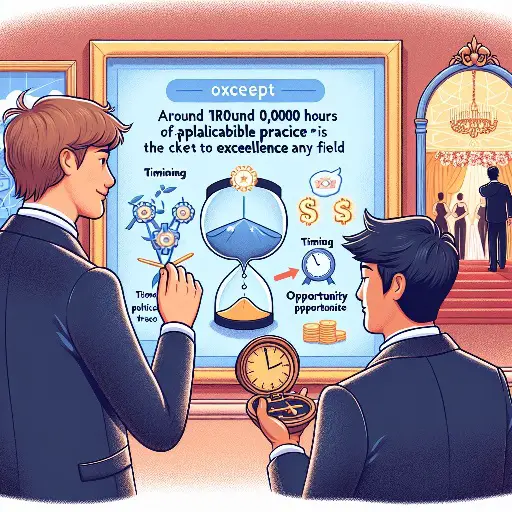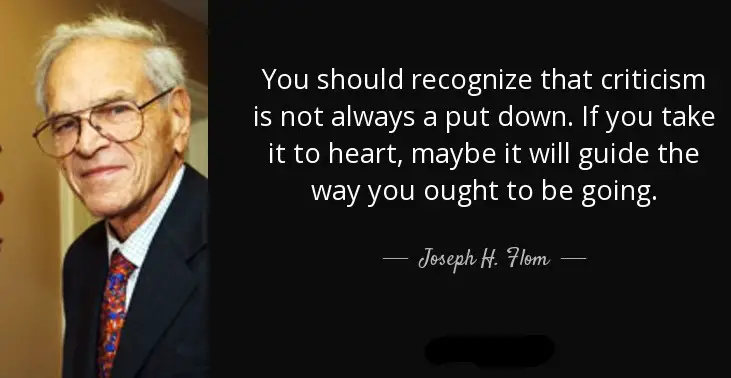Why do some people succeed more than others? Or how ordinary people do extraordinary things?
Malcolm introduces you to incredible people, such as superstars, business leaders, famous people, and programmers.
And uncovers the secrets of a remarkable lawyer, examines what separates the best pilots from average pilots, and tries to figure out why Asians are so good at math.
He also wrote The Tipping Point and Blink. Outliers: The Story of Success is Malcolm Gladwell’s third book, published in 2008.
You can also read the Blink Book Summary (Malcolm Gladwell).
Let’s start the exciting book summary of Outliers chapters-wise, shall we?

- Chapter 1 The Matthew Effect
- Chapter 2 The 10000-Hour Rule
- Chapter 3 The Trouble with Geniuses, Part -1
- Chapter 4 The Trouble with Geniuses, Part -2
- Chapter 5 The Three Lessons from Joe Flom
- Chapter 6 Harlen, Kentucky
- Chapter 7 The Ethnic Theory Of Plane Crashes
- Chapter 8 Rice Paddies And Math Tests
- Chapter 9 Marita’s Bargain
- Takeaway
Chapter 1 The Matthew Effect
The Matthew Effect shows how small advantages can add up over time and lead to big differences in success.
This idea comes from the saying “the rich get richer.” It means that people who start out with small advantages are more likely to gain more benefits, while those who start out with disadvantages often have difficulty getting ahead.
Let’s take a real-life example: social media. A famous influencer with millions of followers gets more attention from brands, fans, and media outlets. This extra attention helps them grow their following even faster. Meanwhile, someone trying to build a following from scratch has to work much harder to get noticed.
It’s like rolling a snowball downhill. The more it rolls, the bigger it gets. And once it’s really big, it’s almost impossible to stop.
This is The Matthew Effect in action. That slight initial advantage of being born a bit earlier leads to more opportunities, more practice, and, ultimately, more success. It’s a reminder that sometimes success isn’t just about talent or hard work—it’s also about timing and your environment.
The author takes the example of an oak in the forest. The tallest tree of oak is not just because it grew from the hardiest acorn.
It is the tallest tree because no other oak tree blocks its sunlight, the soil around it is deep and rich, rabbits don’t chew its sapling, and no lumberjack cuts it down before it grows.
We all know that successful people come from the hardy seed.
They were not rich or full of opportunities at the beginning of their childhood. They were also born in modest circumstances when we read the autobiographies published yearly by billionaires, entrepreneurs, rock stars, and celebrities.
It makes a difference where and when we grow up.
The key element in their success is an early birthdate, which ensures they will be much more physically developed as children than their age class.
This advantage leads them to progress faster, moving up the ranks. Success is the result of accumulative advantage.
Chapter 2 The 10000-Hour Rule
- Is the ten thousand rule a general rule of success?
Malcolm says it takes 10,000 hours to become an expert in any profession. Gladwell illustrates this notion better with the examples of Bill Joy, Bill Gates, and the Beatles.
The University of Michigan opened its new Computer Center in 1971. Bill Joy joined the University at the age of sixteen.
The Computer Center was his life. He programmed whenever he could. Later, Joy got a job with a computer as a professor so he could program over the summer.
In 1975, he enrolled in graduate school at the University of California at Berkeley, where he deeply indulged in the world of computer software.
Joy co-founded the Silicon Valley Firm Sun Microsystems, one of the most critical players in the computer revolution. There, he wrote Java, and his legend grew further.
He is commonly referred to as the Edison of the Internet
Sun Microsystems co-founder Bill Joy discovered that he was given a slew of possibilities to assist him in achieving his goals.
Like Bill Joy, Bill Gates took advantage of the opportunity, and his residence near the University of Washington, which provided free computer hours, aided him as well.
Based on research, Gladwell found that people born between 1954 and 1955 had a better chance of success in the computer sector.
This was because they were at the proper age and had the opportunity to work hard and gain experience before the computer boom.

Chapter 3 The Trouble with Geniuses, Part -1
As we learned in the earlier chapter, family background plays an important role in a person’s success.
- In this chapter, instead of being talented, what is the problem with being successful?
For this, he tells about a talented person like Christopher Legan. Despite being very talented, he had to face problems.
Lagen was talented but faced difficulties with paperwork and processes, as well as the lousy environment around him.
To understand it better, the author explained Langan’s character in two different roles.
On the one hand, he is depicted as a confident, talented person, and on the other hand, as a child of a poor and troubled family.
Because Lagan was good at reading and writing, he should have been able to achieve success quickly.
He didn’t succeed even though he was so educated. This proves Gladwell’s point that success is not achieved only by brain power.
His IQ is higher than Einstein’s. An average person has an IQ of one hundred, Einstein has one fifty, and Christopher Lagen has an IQ of One Ninety-Five.
- What do you think if someone with a higher IQ is also successful in real life?
Gladwell also mentions Lewis Terman, a Stanford University professor who decided to test the intelligence of a little boy named Henry Cowell.
Terman was taken aback by Cowell’s IQ of 140 points, close to genius territory.
He was fascinated. How many other diamonds were in the rough? So, he began to search for more talented kids. He made a group of genesis called “termites.”
Terman had been keeping track of his group’s geniuses, dubbed ‘Termites,’ for years.
Terman’s hopes for his Termites to be great social leaders were dashed when he discovered that intelligence and accomplishment were not linked.
An individual’s IQ or intellect is important, but only to the extent that it reaches or exceeds a particular threshold.
High-tech companies like Google or Microsoft carefully measure prospective employees’ cognitive abilities using an IQ scale. Geniuses are the ultimate outliers.
So far in Outliers, we have learned that extraordinary success is not just about being talented but about having the chance to do so.
Know How Robert Greene’s 48 Laws to Help You Be Smart, Make Good Plans, and Defend Yourself.
Chapter 4 The Trouble with Geniuses, Part -2
To illustrate this point, Gladwell compares the lives of two geniuses, Christopher Langan (American reporter) and Robert Oppenheimer (American theoretical physicist).
Like Lagan, Oppenheimer also had great intelligence. Oppenheimer knew how to deal with challenges, whereas Langan only had a good sense of the job.
As such, Lagan was more capable than Oppenheimer, but because of Oppenheimer’s family, he became more successful than Langan.
Oppenheimers family background led him to believe he was made for great success, while the Langan family doubted his success.
Because of this trust, Oppenheimer became more successful than Lagan. If some people have great brain power but do not have a supporting family, it will not be enough for success.
Gladwell noted during this time that the power of encouragement or encouragement is the comment sense.
This means a person is just wise, but it does not mean they have common sense.
He may be good at studies and writing but lacks common sense. On the other hand, some people are adept at common sense, even if they are not good at studies.
For example, both Langan and Oppenheimer are more talented but lack an understanding of command sense.
Gladwell tells us that people get the common sense from their family.
Like rich people, children interact with people in a way that makes them richer. Success is also linked with your nearby people around you.
Oppenheimer lived, stood up, and sat with the people of the upper class. From this, he learned to speak and stand up for his rights.
The same Langan family moved from place to place, facing difficulties with jobs, money, food, and clothes. From this, Langan learned that one should not trust too much.
And try to do all the work alone. Oppenheimer, on the other hand, could team up and make more money by doing more work.
This simply means that success is not found with just one person but with people. Gladwell says, “The most important thing is your family background.”
But that doesn’t mean that poor householders can’t ever succeed. To succeed, people need inspiration and help. If they don’t get it from their family, they can get it from others in society.
But for great success, it is essential to move forward together with people.
Learn the 80/20 Principle and How to Use It to Become Happy and Blessed.
Chapter 5 The Three Lessons from Joe Flom
In this chapter, the author tells the story of Joe Flom and how poverty and racism affected his success.
He started working for a small company that later became a huge company worth billions of dollars.
Flom’s ability, along with the assistance of other prominent lawyers in New York and sales professionals, enabled him to attain wealth.
In Flom’s case, his challenges helped him immensely. He converted the challenges into opportunities, which enabled him to become successful in his life.
If you recognize challenges, they can be a good chance to become rich. In additional, the author mentions Alexander Bickell and compares him to Joe Flom.
Both being in similar backgrounds, Bickell had many good legal advisers, but despite this, law firms did not hire because of his old ideas.
Further, compare Gladwell Flom to Bill Joy and Bill Gates. All of them had the ability and took the time to practice, so they were ready when the right time came.
Compared to Joy and Gates, Flom was less successful due to discrimination. The author says the date of birth is a better chance for a person to become successful.
The less successful people in the 19th century were born between 1903 and 1911, while the more successful were born between 1912 and 1917.
Gladwell explains that this is not a magic number but because of the influence of World War II. He also uses the same metric to describe Mort’s success and Maurice’s challenges.
Like businessmen born in the 1830s, computer programmers born in the mid-1950s.
Demographic factors are important for a person’s success. Being born in one generation to the next gives that generation a better and faster chance to succeed.
They also have to deal with challenges, but they have a predetermined fame work for their work. Our advice and experience will be helpful to them.
If you want your children to succeed, you need to do better work. Then, they can learn from you and move forward in their lives.

READ It To Find True Happiness And Purpose of Life: Ikigai Book Summary (With Pdf)
Chapter 6 Harlen, Kentucky
We have already discussed how family plays a crucial role in determining success, but now let’s dive into another powerful factor: culture. How does the culture we grow up in shape our path to success?
In the 1990s, a study on cultural influence revealed something intriguing about people from this region. Children raised in this culture were taught to treat others with respect, but they also had a heightened sensitivity to insults. This combination led to a strong sense of self-esteem and, importantly, a fierce determination to protect it.
Because of this, people from this culture were often more motivated to get rich and successful. The motivation was not solely focused on personal gain, but rather on gaining respect and ensuring that no one could view them with disrespect. Success became a way to secure a life where their dignity was untouchable.
So, what does this tell us? If you’re raised in a culture or family that instills the values of hard work and success, you’re more likely to achieve it. And if that culture also fuels your motivation, it can accelerate your journey even more.
Your environment, beliefs, and values can have a significant impact on your future.
Chapter 7 The Ethnic Theory Of Plane Crashes
Let understand how small things together affect big success.
Gladwell compares plane crashes in films with real-life plane crashes to illustrate this.
This shows that plane crashes are usually not the result of big problems; instead, they are caused by faults and mistakes in small matters.
As Gladwell also explains, success is made of small elements. Similarly, failure occurs only when small things are not right.
For example, a plane has to face many difficulties while flying in bad weather, including flight delays, a minor Technical glitch, and little interaction between the pilot and co-pilot.
If there is wrong communication in this, the plane may have trouble running. The author cites a true example: Korean Air Flight 801 crashed.
Everything seemed fine with the pilot and the plane. Still, the aircraft crashed, due to which 228 people died.
The investigation team of Korean Air Flight 801 reported that the plane crashed due to a minor technical issue with the engine and the inability to handle it properly in bad weather.
This accident could have been avoided if the two pilots had correctly communicated. Thus, the accident happened due to a lack of awareness of each other and improper communication.
Talking calmly shows respect for a person, and this is an example of culture.
Gladwell explains that plans are safer when a less experienced pilot is in charge. This is because a low-experience flyer talks to the pilots and the single team instead of assuming everything on their own.
It keeps getting the right signals, but sometimes, a more experienced pilot communicates and decides only based on his experience rather than fact, which can be dangerous.
Being strict in charge could be dangerous if the people below feel uncomfortable speaking to him. It is possible to reduce this danger if it is understood that everyone is working towards the same goal.
Want to know a new way of thinking about mornings that has made people’s lives better worldwide? Then Read Miracle Morning Book.
Chapter 8 Rice Paddies And Math Tests
If a person does not come from an environment that encourages and supports success, they should seek their help by finding other people in the society who can help them succeed.
Gladwell suggests that true academic success requires more than 180 days of class per year, which is the average for schools in the United States but not anywhere else in the world.
Using this, Gladwell gives another example of the relationship between hard work and success. He describes a fifth-grade student who was so poor at math that she failed.
However, due to the constant encouragement of the teacher, she started studying properly and finally passed school with good grades. After passing college, she became the head accountant.
The author suggests having a strong will for success, being prepared to learn, and continuously working hard.
If you want to change your life by becoming wealthy and successful in your life, then you can also read the book summary of The 10X Rule Summary (Grant Cardone)
Chapter 9 Marita’s Bargain
The book’s final chapters demonstrate that inner-city children placed in intensive study schools achieve as much as kids from wealthy suburbs.
He discusses KIPP (1990s), a New York public school focusing solely on academic performance. KIPP has attracted a lot of attention, mainly because it has been able to assist low-income children.
The school has large classes, no entrance requirements, and students are chosen by lottery.
KIPP has changed the way it works. The average school day lasts from 7:25 a.m. to 5 p.m., which is anywhere from 50 to 60 percent longer than the average American public school.
Furthermore, there are homework clubs and other extracurricular activities. They follow the Asian model, in which students study hard, developing a strong sense of discipline.
The students come in for half-days on Saturday and work an extra three weeks of school in July.
The pupils receive considerable attention from their teachers, and even though at least 80% of impoverished children enroll in school, KIPP students receive a favorable start in life.
Gladwell argues that success is not simply the result of intelligence or isolated efforts.
Takeaway
The outlier person is someone who has had the strength of mind to seize an opportunity.
Gladwell has genuinely changed the way most people think about success. An outlier can grab golden opportunities and build a great future for himself.
For the Beatles, it was their Hamburg gigs; for Joe Flom, it was being born to the right parents at the right time and with the right background.
Thus, to build a better world, we should replace these arbitrary advantages that determine success for a few with a society that offers opportunities for all.
The appropriate time, cultural effects, and opportunities can make the outliers.
